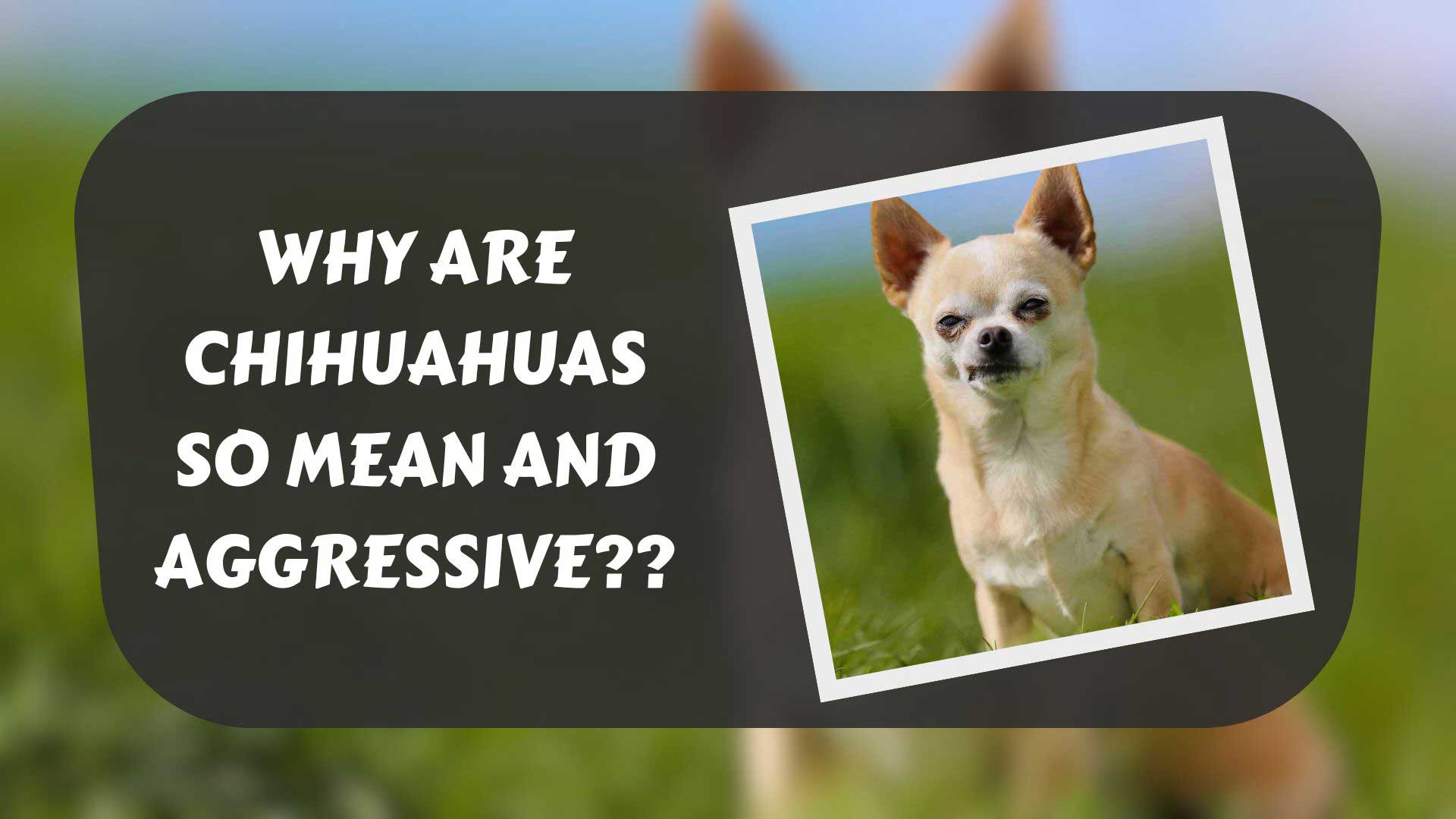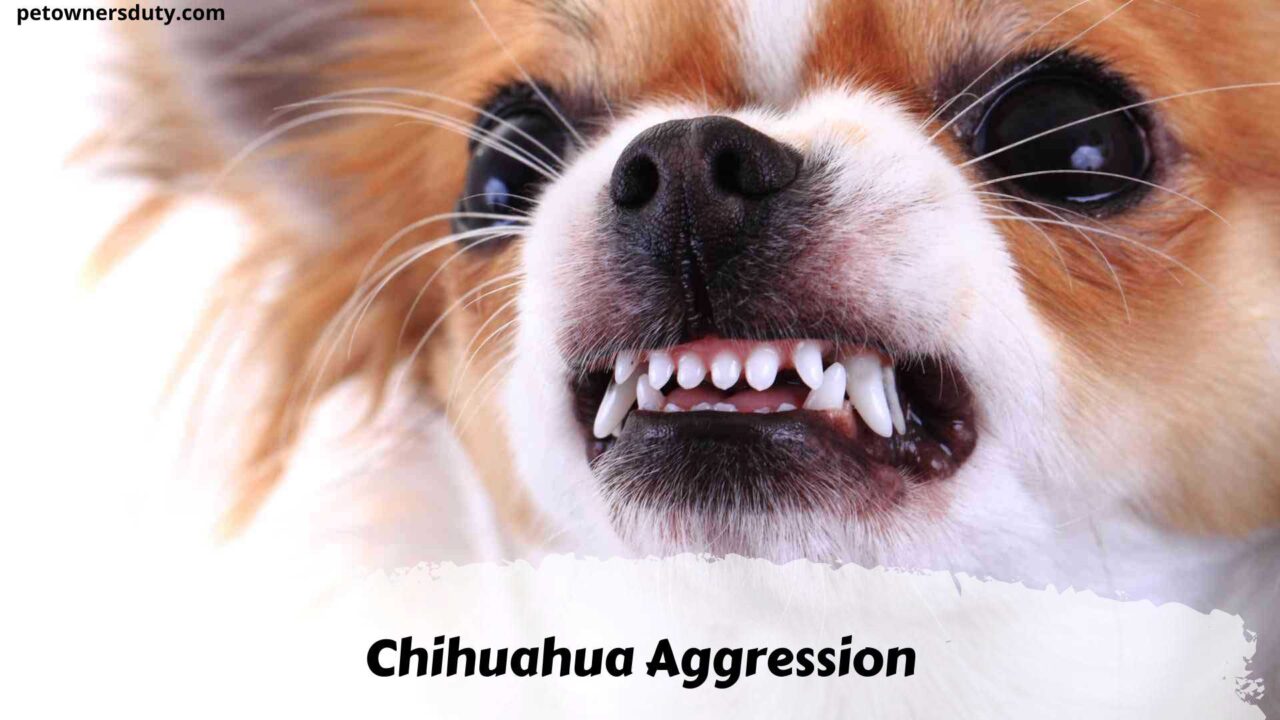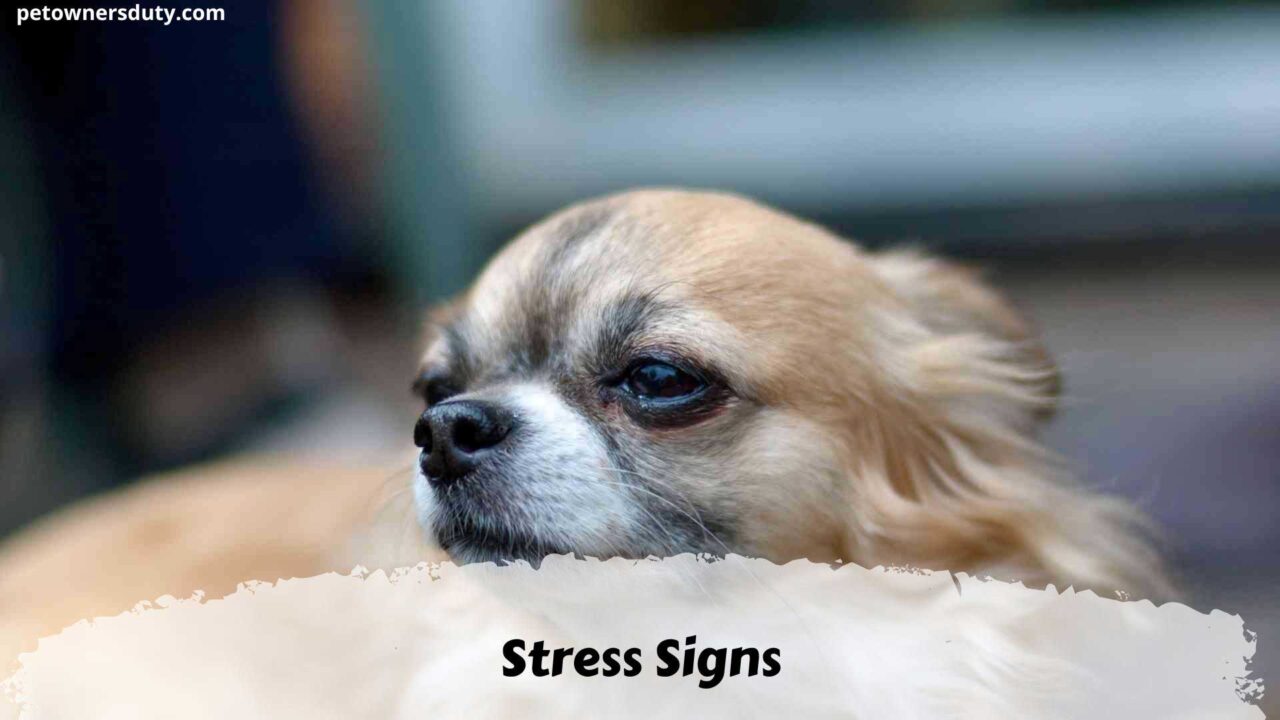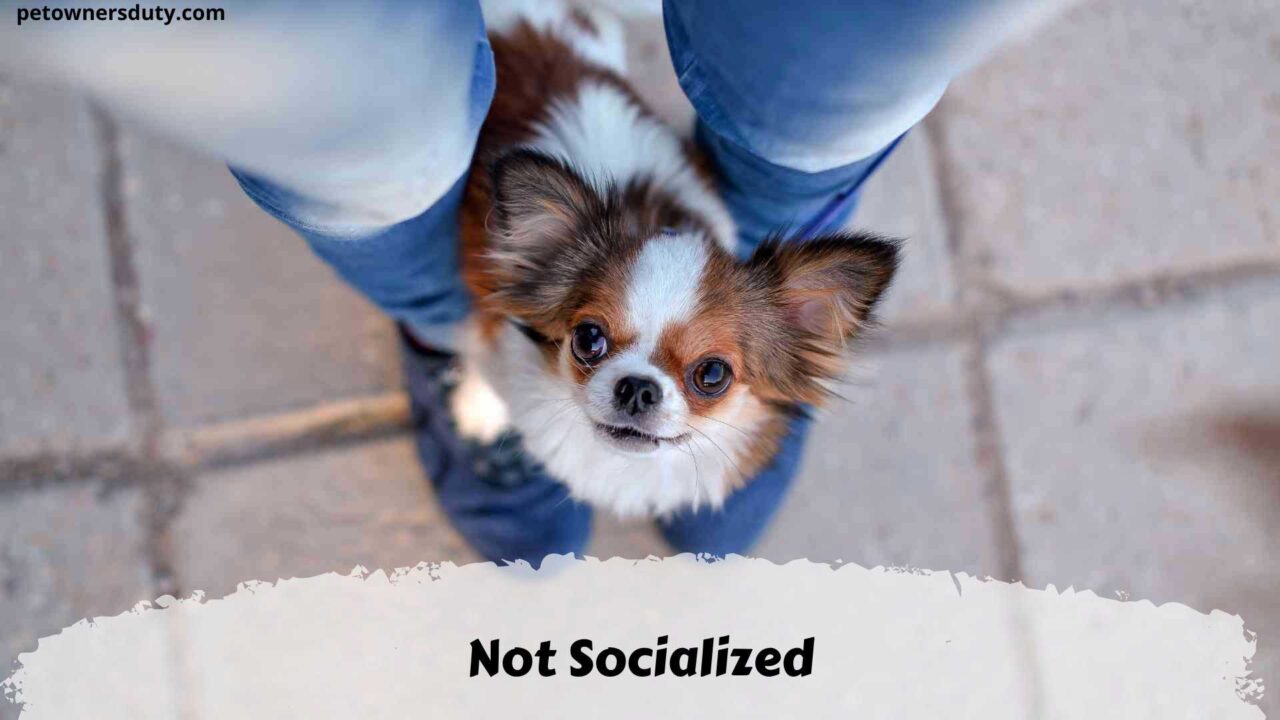7 Surprising Reasons : Why Are Chihuahuas So Mean And Aggressive?

Have you ever had the experience of meeting a stunning little Chihuahua and getting near them to offer some love only to have them growl at you with bare teeth and burst into a display of nipping and barking?
This is actually quite the usual behavior for canines of this breed. Many dog keepers view these pups as large divas in small bodies who tend to get volatile when they sense fear, when they feel like their habitat is intruded upon, or if anyone gets quite near to their special person.
Let’s take a more intimate look at why chihuahuas are so mean and aggressive.
Common Reasons For Chihuahua Aggression

There are multiple reasons that these dogs can be hostile, and frequently more than one element is involved. So, let’s see what creates this dog to be aggressive.
1. People fail to recognize their pet’s stress signs

Unfortunately, pet keepers and breeders are the main reason that these dogs can be mean for multiple reasons. And one of the reasons they frequently fail is by not understanding their pup’s communication or even deliberately ignoring it.
Unlike a larger canine, like a Cane Corso or a Rottweiler, many individuals merrily ignore a dog’s early body language that indicates they’re unhappy about something in their space.
You’ll frequently witness a Chihuahua begin by averting their face, licking their lips, breathing faster, yawning, and displaying other indications of stress before they become mean.
When you ignore a dog’s anxiety signs and continue to provoke them, this demeanor will naturally rise to snarl and ultimately to biting. In most circumstances, just by appreciating the pup’s early cues and symptoms of anxiety, a bite could be avoided.
2. Dog owners don’t get as much professional help for their pets
Little pups are less likely to receive the help they require, even when their demeanor shows they are struggling with fear, insecurity, stress, or even anxiety.
Usually weighing no more than 6 pounds, these dogs are quite vulnerable to their setting. Larger dogs, kids, and even their own keepers can appear overwhelming and even unsafe, so they frequently develop aggression as a mode to defend themselves.
This can lead to intense behavior issues that won’t resolve themselves without experienced help.
3. The dogs are frequently not trained and socialized

Another element that can contribute to volatility in the dog is their often lack of socialization. They’re generally thought to be devoted and loyal lap dogs, and many of these pups show any symptoms of meanness.
Lack of appropriate socialization during the crucial puppy period of about 8 to 16 weeks usually causes aggressive canines. If the dog isn’t exposed to various people and conditions, it may become defensive and fearful of those new sounds and sights.
This is particularly true of this breed, as they’re naturally distrustful of new individuals and cases.
4. Chihuahuas usually don’t get any obedience training
In addition, Chihuahuas may be aggressive because of wrong training. If a canine doesn’t get the correct type of consistent reinforcement and training from early on, they won’t know how to act perfectly.
For instance, reacting to commands with treats for optimistic reinforcement instead of scolding is a right way to make sure that your pet acts well. Further, overlooking bad behavior and rewarding right behavior is key to denying their aggression.
5. The dog frequently don’t get enough exercise

Another reason why these dogs may behave meanly is because of a lack of exercise. The dogs are known for being lap puppies, but this doesn’t mean that they should just remain in the home throughout the day.
They require lots of mental and physical stimulation to stay happy, healthy, and well-behaved. Without adequate exercise and mental exercise, they may become hyperactive, which can cause barking or nipping as a way of conveying their pent-up energy.
6. Medical illnesses can cause aggression in the dogs
Another cause why the dog may be mean is because of health problems. They may display aggressive behavior because of discomfort or physical pain arriving from underlying health concerns. They’re quite vulnerable to unfortunate hypothyroidism and dental problems.
With their soft bones, the breed is inclined to get hurt. But various neurological problems like brain tumors or epilepsy can also lead to aggressive behavior.
A meeting with the vet can help determine any underlying wellness concerns and offer treatment to provide your pet some relief.
7. Genetics can frequently be the root cause of aggression
On the other side, a few mean dogs are mean simply due to their bloodlines and breed. On a favorable note, they were bred to be alert, brave, and defensive, but they can take these factors to the extreme.
As a consequence, they can be wary of strangers, bark overly when they feel threatened, and lunge aggressively at anything they don’t trust.
Breeding puppies of quite small sizes is also connected with a decisive tendency to notice them as “babies.” This causes owners and breeders to ignore aggression and genetic anxiety, passed down from parents to pups.
How To Handle Chihuahua Aggression?
Is there anything you can do about this breed’s aggression? Yea, to a point.
It’s a natural personality feature of this breed, so you’ll never be able to take it out of them entirely, but you can take some measures to help determine their potentially destructive activities.
1. Socialize From A Young Age
The only way to get the dog to be more welcoming of outsiders and bizarre animals is to socialize them and train them that not all outsiders are dangers – though they’ll inevitably sense some as dangers, particularly early on in their socialization and training.
It’s most pleasing to begin socializing in the essential 8 to 16-week age bracket. At this period, puppies go through an anxiety period where they form their baseline for what is dangerous and what is good for them.
The positive and negative experiences they hold at this time make a significant influence on their future growth.
Proper socializing at this phase in their lives can create a major difference! If your dog is more aged, all is not lost; you can still train them to be a little more sociable. However, this may require more time and hard work.
2. Obedience Training
You can also manage your dog’s demeanor to a particular extent with fine, consistent obedience training.
If your dog has a suitable response to sit, stop, heel, and similar orders, then you can control them in their tracks when they’re close to getting aggressive. Because of their somewhat stubborn nature, these pups are difficult to train.
Nevertheless, constant reward-based teaching can be useful with this breed if you’re ready to commit to the teaching and be firm. Beginner owners may need to consider obtaining some professional trainer help.
3. Form A Secure Environment
Anxiety and stress tend to make the dog more likely to behave with aggression. This can happen in these canines when they undergo separation anxiety because they’re expected to spend prolonged time on their own.
A change in their surroundings can also cause anxiety, whether this is shifting home or the welcome of a new pet. Be aware of environmental aspects that are concerning your dog and try to maintain them under control to handle their moods and stress.
Frequently Asked Questions
Why are a few Chihuahuas so aggressive?
The breed is innately protective and territorial of its humans. Their small size indicates they tend to hop into action when they sense a danger instead of waiting to see what occurs.
Their small size also indicates they tend to notice the world as more dangerous than larger canines.
Why do Chihuahuas shake too much?
The breed tends to shake due to its high metabolism and its tendency toward anxiety-concerned problems.
Why are Chihuahuas so defensive?
The dog is occasionally naturally dominant and can be seen protecting their territory and people as part of their job. However, it’s more usual for individuals to misunderstand resource guarding for protectiveness.
In this case, the dog is actually in an extreme state of anxiety that somebody will carry away their meal, or attention from their keeper. This can lead to fear-based aggression.
Why are Chihuahuas so clingy?
The dog tends to be quite attached to one person, who offers them a sense of affection, protection, and food. Without appropriate socialization, this can cause the dog to become clingy and hyper-attached. They may undergo separation anxiety too.
Why are Chihuahuas so hyper?
These pups are naturally cautious little canines with extremely fast metabolisms. This means the dog tends to possess lots of energy for their size and they may turn to “hyper” mode without adequate exercise. With everyday strolls and good playtime, their vibrant natures may calm down.
To Sum Up
Though the dog can be aggressive and mean, it’s essential to know that these behaviors can usually be fixed with socialization, training, and plenty of patience.
These are loving and smart dogs who make amazing pets. They only require individuals to offer time to know them and prevent any type of teasing that makes meanness more alarming.






